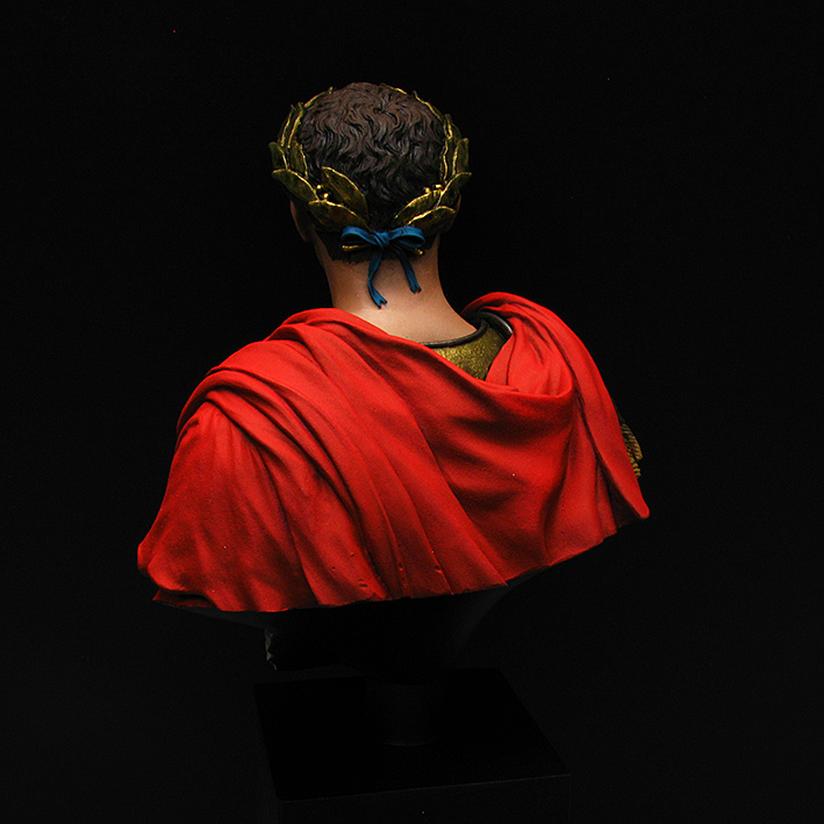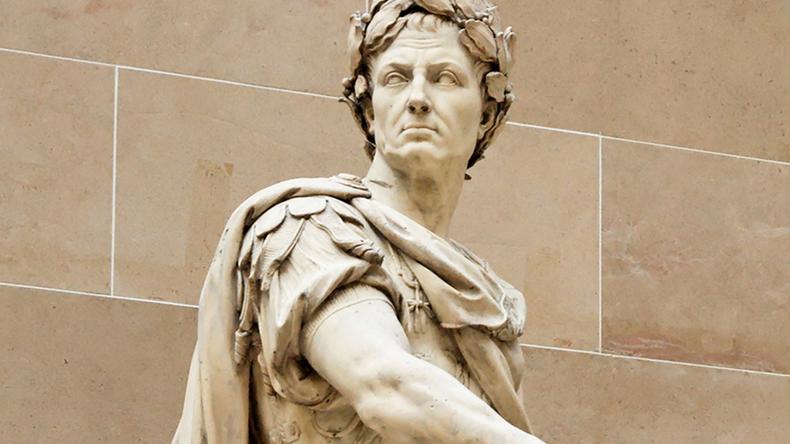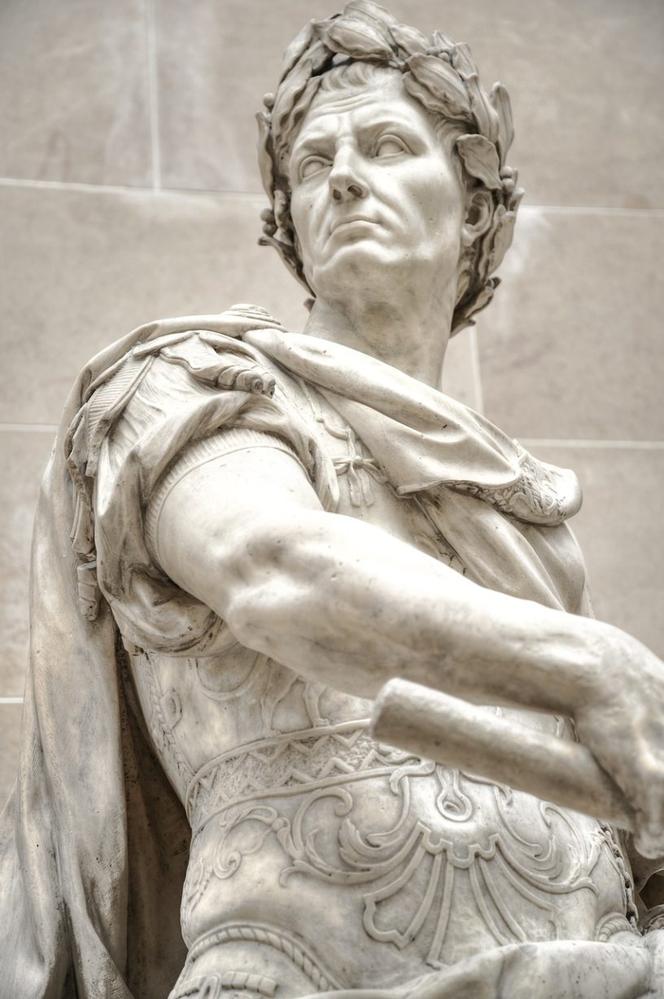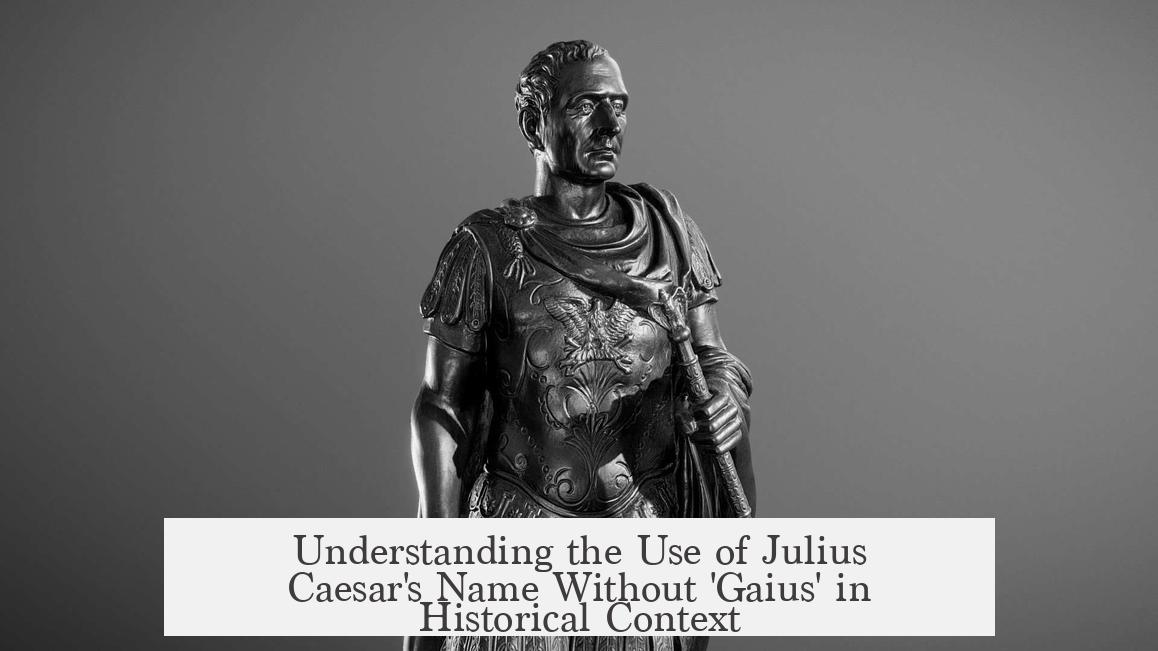Gaius Julius Caesar is almost always referred to without his given name “Gaius” because of Roman naming customs and the need for clear identification among multiple Romans sharing similar names. Roman society used a limited set of personal names, known as praenomina, with very few variants. “Gaius” was one of the most common praenomina, similar to “Jack” in English. Due to this commonality, the praenomen often held limited distinguishing value, especially for famous individuals.

In Roman naming conventions, each citizen had three key names: the praenomen (personal name), nomen (family or gens name), and cognomen (branch or nickname). Since there were only a few dozen praenomina in wide use, these were often abbreviated to a single letter, such as “G.” for Gaius. Families frequently repeated the same praenomen across generations, which reduced its usefulness for uniquely identifying individuals in historical records.
The Romans solved the identification problem in other ways. Instead of relying on the praenomen, ancient writers referenced achievements, political offices, or family relationships. For example, Marcus Porcius Cato was differentiated as “Cato the Elder” or “Cato the Younger.” Similarly, Julius Caesar was commonly identified by his cognomen “Caesar” or by titles such as “the dictator” or “the divine Julius” to distinguish him from other family members who shared the same name.

There were several notable Romans named Gaius Julius Caesar, including his father and grandfather. The famous Julius Caesar is the most renowned figure of the Julian family branch, so he was treated as “the” Julius Caesar in most contexts. Other Julius Caesars required more detailed descriptors to avoid confusion. Therefore, the praenomen “Gaius” was often omitted because it did not add meaningful clarity.
Ancient authors like Plutarch generally referred to him simply as “Caesar,” as within their context, this was sufficient to identify him. Suetonius called him “the divine Julius” to mark his singular status among many Caesars. This pattern of dropping the praenomen is common among famous Romans. Leaders like Cicero, Pompey, and Augustus are generally known by their family or cognomen names. However, exceptions exist, such as “Marcus Aurelius,” where the praenomen is regularly used.

The modern habit of calling him “Julius Caesar” likely owes much to William Shakespeare’s influence. His famous play, titled “Julius Caesar,” popularized this form in English-speaking cultures. Shakespeare worked from early English translations of Plutarch’s biographies. The name format from the play then entered textbooks, histories, and popular culture, solidifying “Julius Caesar” as the standard reference.
Essentially, the omission of “Gaius” results from:

- The high frequency of the praenomen Gaius in Roman society.
- The prevalence of multiple notable Romans with the same praenomen and nomen.
- The common Roman practice of identifying prominent figures by their achievements, titles, or cognomens instead of praenomina.
- The cultural and literary shaping of the name in modern times, especially through Shakespeare.
This explains why the famous Roman is nearly always called “Julius Caesar” rather than “Gaius Julius Caesar.”
| Key Point | Explanation |
|---|---|
| Praenomen rarity | Few commonly used first names; “Gaius” very common and often abbreviated. |
| Identification | Cognomen and titles served to distinguish individuals more effectively than praenomina. |
| Multiple Gaius Julii | Several Romans shared the same full name; famous Caesar stood out by reputation. |
| Ancient practice | Sources often dropped praenomen unless needed for clarity. |
| Modern influence | Shakespeare’s play cemented “Julius Caesar” as the dominant form in English. |
- Roman naming customs limit use of praenomen due to commonness and abbreviation.
- Ancient writers identified important people by titles or cognomen rather than first names.
- Multiple notable Romans named Gaius Julius Caesar made praenomen less useful for identification.
- Modern naming conventions were shaped by historic literature, notably Shakespeare.
Why Is Gaius Julius Caesar Almost Always Referred to Without His Given Name Gaius?

The quick answer: Gaius was such a common Roman first name that it rarely helped to identify a person clearly, even someone as famous as Julius Caesar. So, people dropped it and used his family and surname—“Julius Caesar”—because that’s what really made him stand out. This unique combination gave him an identity that stuck through history and literature.
Now, let’s take a closer look at why this happens and what it tells us about Roman culture, naming, and how history remembers the most infamous dictator. Spoiler alert: it’s more than just laziness!

The Roman Naming System: A Short Guide
Roman names had a three-part structure: praenomen (given name), nomen (family name), and cognomen (branch or nickname). The praenomen was like your first name, but unlike modern names, they had very limited options.

Take the praenomen Gaius. It’s one of the most popular and ancient names in Rome—so popular that it’s almost like the Roman equivalent of “John” or “Jack.” In fact, it was so common, Romans used it in wedding vows as a generic stand-in for any man. Imagine literally saying “I take you, Jack” every wedding ceremony—that’s Gaius in ancient Rome.
Praenomens like Gaius could be abbreviated with just one letter (G. or sometimes C.). Families typically passed these names down through generations. Because lots of male Julius families had a Gaius as their eldest son, multiple Gaius Julius Caesars lived through history, including Caesar’s father and grandfather. This limits how helpful “Gaius” really was to identify *which* Gaius Julius Caesar someone meant.
How Did Romans Distinguish People Then?
Good question! When you have scores of people named Gaius in different branches of the same family, you obviously need better ways of telling them apart. Instead of using first names, Romans leaned on other identifiers:
- **Official titles or offices held:** Calling someone “Cato the Censor” clearly points to the one from the Punic Wars, not his namesake.
- **Descriptors like “The Elder” or “The Younger”:** To separate contemporary family members.
- **Cognomens or nicknames:** These often outshined the praenomen when it came to everyday recognition.
Because the praenomen was so limited and less distinctive, ancient sources sometimes left it out entirely. If “Caesar” alone could identify the person, why bother muddling the waters with “Gaius”?
Julius Caesar: The Man Behind the Name
The famous leader we call Julius Caesar was technically Gaius Julius Caesar, but he’s not the only one with that name. His father and grandfather had the exact same full designation too. So, to avoid confusion, ancients often dropped “Gaius” when referring to him.
Instead, he was described by what made him remarkable:
- The Dictator—highlighting his political power
- The Divine—after his deification
- Simply “Caesar”—because in his era, he was the one ‘Caesar’ everyone knew.
In fact, Plutarch’s biography mainly calls him “Caesar,” since there was little risk of mixing him up with others at that time. Suetonius, writing later, needed clearer distinctions and called him “the divine Julius” to tell him apart from his descendants and other Julii.
More Names, Less Firsts: The Roman Norm
Caesar’s case isn’t unique. Many famous Romans are known without their praenomens:
- Cicero was actually Marcus Tullius Cicero.
- Scipio Africanus was Publius Cornelius Scipio Africanus.
- Pompey was Gnaeus Pompeius Magnus.
- Brutus was Marcus Junius Brutus.
Some exceptions exist, like the philosopher-emperor Marcus Aurelius, where the praenomen sticks for clarity and tradition. But the typical rule was clear: surname > given name, especially when multiple family members shared the same praenomen.
The Shakespeare Effect and Modern Popularity
Why do we in the West almost exclusively say “Julius Caesar” now? One big reason is William Shakespeare. He wrote a play titled Julius Caesar based on early English translations of Plutarch’s “Lives.” Shakespeare’s works shaped much of the modern English-speaking world’s view of ancient Rome.
Because the play became iconic, “Julius Caesar” stuck as the way to refer to this historic figure. The name emphasizes his family and larger identity, not his given name.
Over time, “Julius Caesar” became a symbol of power, ambition, and tragedy all wrapped into two memorable words—much easier to remember than “Gaius.”
To Sum It Up
Gaius was just too ordinary and common a name to stand out in the tangled web of Roman families. Because there were multiple Gaius Julius Caesars across generations, people relied on titles, achievements, and surnames to tell the story right.
The merging of ancient Roman naming practices and cultural reinterpretations, boosted by Shakespeare, helped “Julius Caesar” become the iconic name it is today.
So next time you hear “Julius Caesar,” remember: it’s not forgetting his first name; it’s Roman practicality and cultural legacy in action.
Bonus: Quick Tips for Remembering Roman Names
- Praenomen – Like your first name; limited pool.
- Nomen – Family name, shows gens (clan).
- Cognomen – Branch or “nickname,” often what mattered most.
- Use titles and achievements to identify famous Romans instead of first names.
Simple. Clear. Timeless—just like Julius Caesar without his first name, Gaius.




